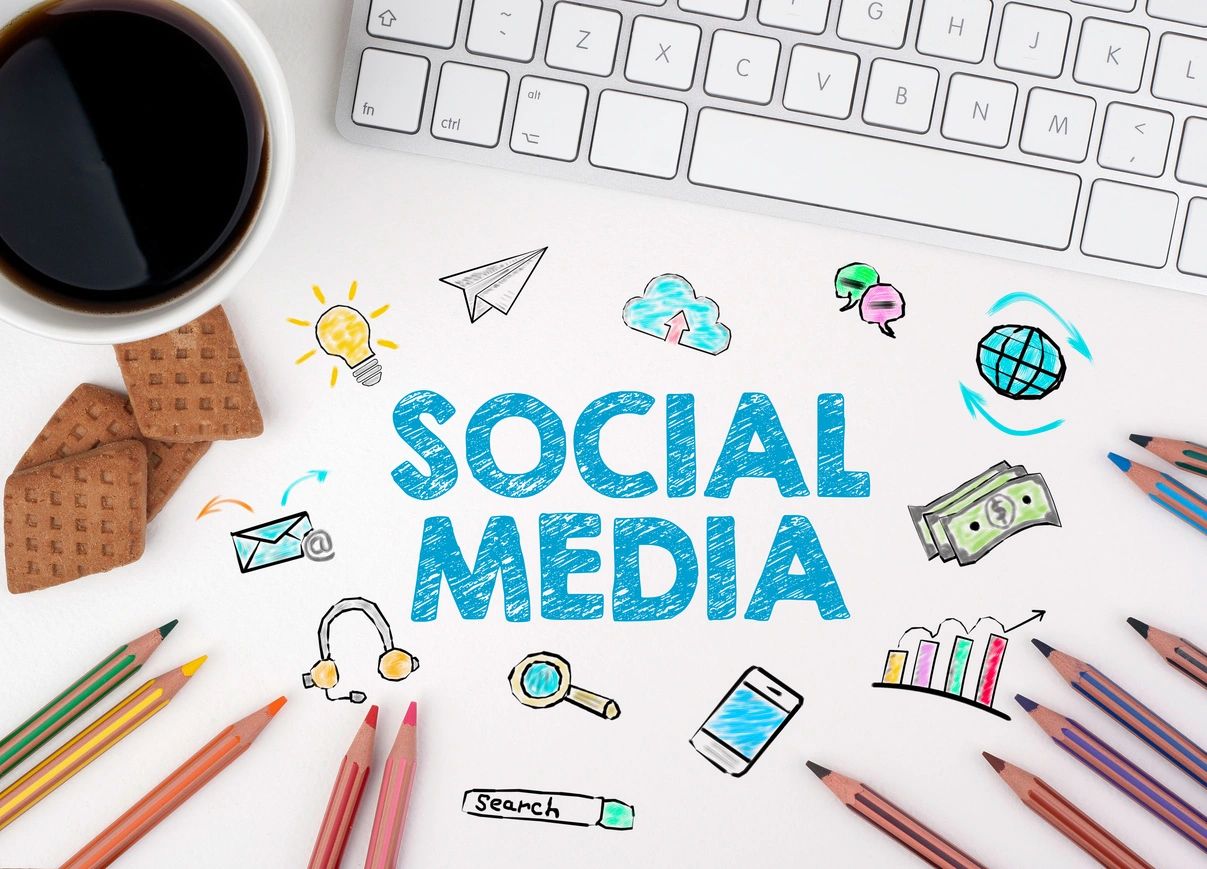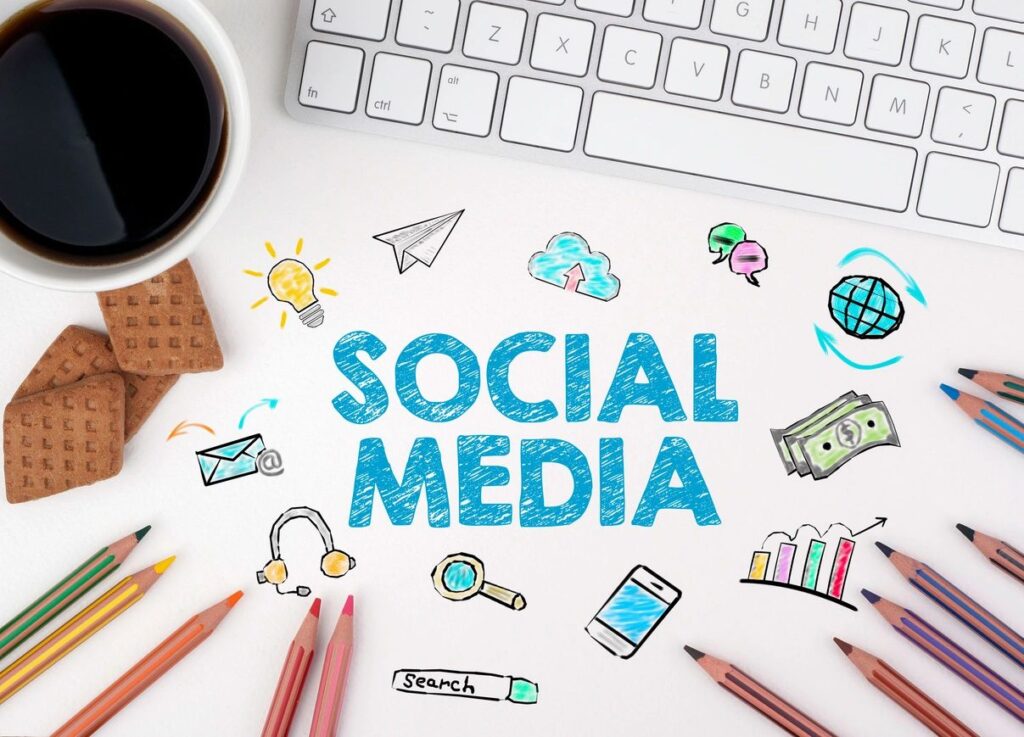

In today's digital age, social media has become an integral part of our daily lives, especially for teenagers. From Instagram to TikTok, social media platforms offer teenagers a space to connect, share, and express themselves. However, the influence of these platforms on teenage mental health has become a topic of increasing concern. This blog post explores the various ways social media impacts teenage mental health, supported by relevant statistics, examples, and actionable tips to help mitigate negative effects.
Understanding the Prevalence of Social Media Use Among Teenagers
According to the Pew Research Center, 95% of teenagers in the United States have access to a smartphone, and 45% are online 'almost constantly'. Social media platforms like Instagram, Snapchat, and TikTok are particularly popular among this age group. The widespread use of these platforms raises important questions about their impact on teenagers' mental well-being.
The Positive Aspects of Social Media
While much of the discussion around social media and mental health tends to focus on the negative aspects, it's essential to acknowledge the positive effects. Social media can:
- Provide a sense of community and belonging
- Offer platforms for self-expression and creativity
- Facilitate connections with peers and support networks
- Provide access to valuable information and resources
For example, many teenagers use social media to connect with like-minded individuals, seek advice, and find support for various issues, including mental health challenges.
The Dark Side: Negative Impacts on Mental Health
Despite the positive aspects, there are significant concerns about the negative impact of social media on teenage mental health. Some of the most pressing issues include:
1. Cyberbullying and Online Harassment
Cyberbullying is a prevalent issue on social media platforms. A study by the Cyberbullying Research Center found that 37% of teenagers have experienced cyberbullying at some point. The anonymity of the internet can embolden bullies, leading to severe emotional distress for victims.
2. Comparison and Low Self-Esteem
Teenagers often compare themselves to their peers and influencers on social media, leading to feelings of inadequacy and low self-esteem. A study published in the Journal of Adolescence found that frequent social media use is associated with body image issues and poor self-esteem among teenagers.
3. Addiction and Reduced Sleep
Social media addiction is a growing concern, with many teenagers spending excessive amounts of time on these platforms. This addiction can lead to reduced sleep quality and duration, which is crucial for physical and mental well-being. The Sleep Foundation reports that teenagers need 8-10 hours of sleep per night, but social media use often disrupts this.
4. Anxiety and Depression
Research has shown a correlation between excessive social media use and increased levels of anxiety and depression among teenagers. A study conducted by the University of Pennsylvania found that limiting social media use to 30 minutes per day can significantly reduce symptoms of anxiety and depression.
#James Donaldson notes:
Welcome to the “next chapter” of my life… being a voice and an advocate for #mentalhealthawarenessandsuicideprevention, especially pertaining to our younger generation of students and student-athletes.
Getting men to speak up and reach out for help and assistance is one of my passions. Us men need to not suffer in silence or drown our sorrows in alcohol, hang out at bars and strip joints, or get involved with drug use.
Having gone through a recent bout of #depression and #suicidalthoughts myself, I realize now, that I can make a huge difference in the lives of so many by sharing my story, and by sharing various resources I come across as I work in this space. #http://bit.ly/JamesMentalHealthArticle
Find out more about the work I do on my 501c3 non-profit foundation
website www.yourgiftoflife.org Order your copy of James Donaldson's latest book,
#CelebratingYourGiftofLife: From The Verge of Suicide to a Life of Purpose and Joy

www.celebratingyourgiftoflife.com
Link for 40 Habits Signup
bit.ly/40HabitsofMentalHealth
If you'd like to follow and receive my daily blog in to your inbox, just click on it with Follow It. Here's the link https://follow.it/james-donaldson-s-standing-above-the-crowd-s-blog-a-view-from-above-on-things-that-make-the-world-go-round?action=followPub
Actionable Tips to Mitigate Negative Effects
While the negative impacts of social media on teenage mental health are concerning, there are several strategies that parents, educators, and teenagers themselves can implement to mitigate these effects:
1. Encourage Healthy Social Media Habits
Parents and educators should encourage teenagers to develop healthy social media habits. This includes setting time limits on social media use, taking regular breaks, and being mindful of the content they consume. Apps like Screen Time for iOS and Digital Wellbeing for Android can help monitor and manage screen time.
2. Promote Open Communication
Open communication between parents and teenagers is crucial. Parents should create a safe space for teenagers to discuss their experiences on social media, including any negative encounters. This can help identify issues early and provide the necessary support.
3. Educate About Cyberbullying
Education about cyberbullying and its consequences is essential. Schools and parents should provide resources and workshops to help teenagers understand the impact of cyberbullying and how to respond to it. Encouraging teenagers to report any incidents of cyberbullying is also important.
4. Foster Real-World Connections
Encouraging teenagers to engage in real-world activities and build offline connections can help balance their social media use. Participating in sports, hobbies, and community events can provide a sense of fulfillment and reduce the reliance on social media for validation.
5. Promote Digital Literacy
Teaching teenagers about digital literacy and critical thinking can empower them to navigate social media responsibly. This includes understanding the difference between curated content and reality, recognizing the influence of algorithms, and being aware of the potential for misinformation.
Conclusion
Social media has a profound impact on teenage mental health, with both positive and negative aspects. While it offers opportunities for connection and self-expression, it also poses risks such as cyberbullying, low self-esteem, addiction, and mental health issues. By understanding these impacts and implementing strategies to promote healthy social media use, we can help teenagers navigate the digital world more safely and positively.
As parents, educators, and society as a whole, we must prioritize the mental well-being of teenagers and provide them with the tools and support they need to thrive in an increasingly digital world.

https://standingabovethecrowd.com/the-impact-of-social-media-on-teenage-mental-health/


No comments:
Post a Comment